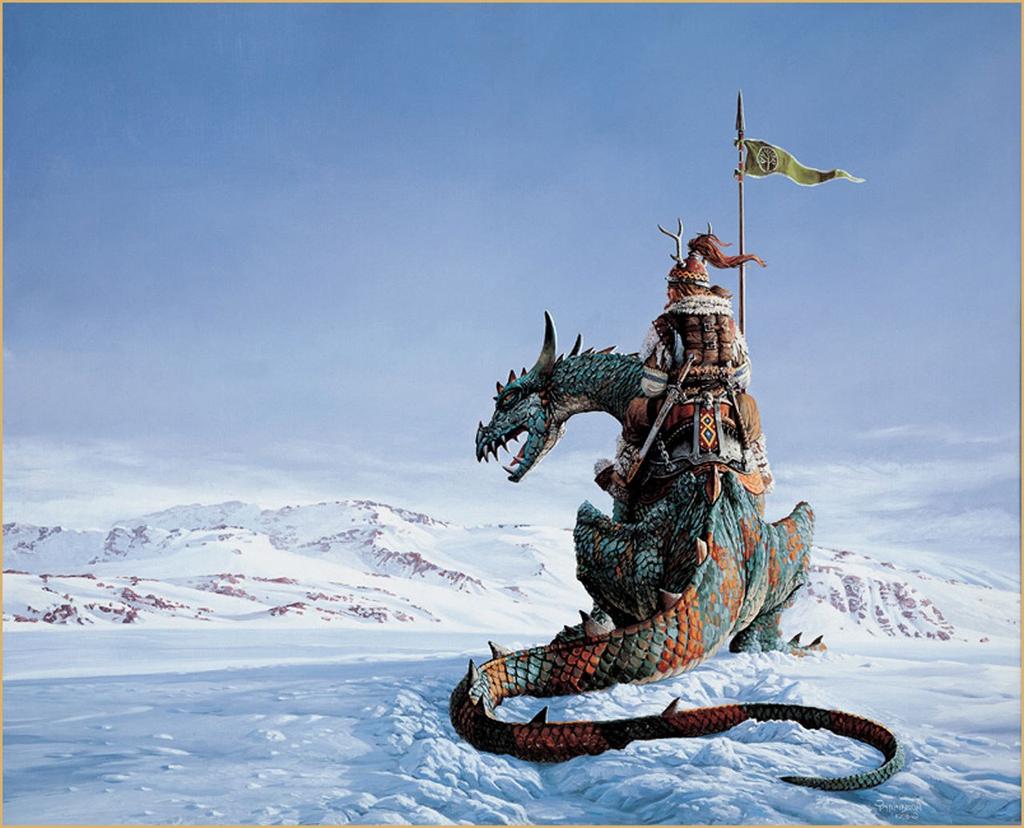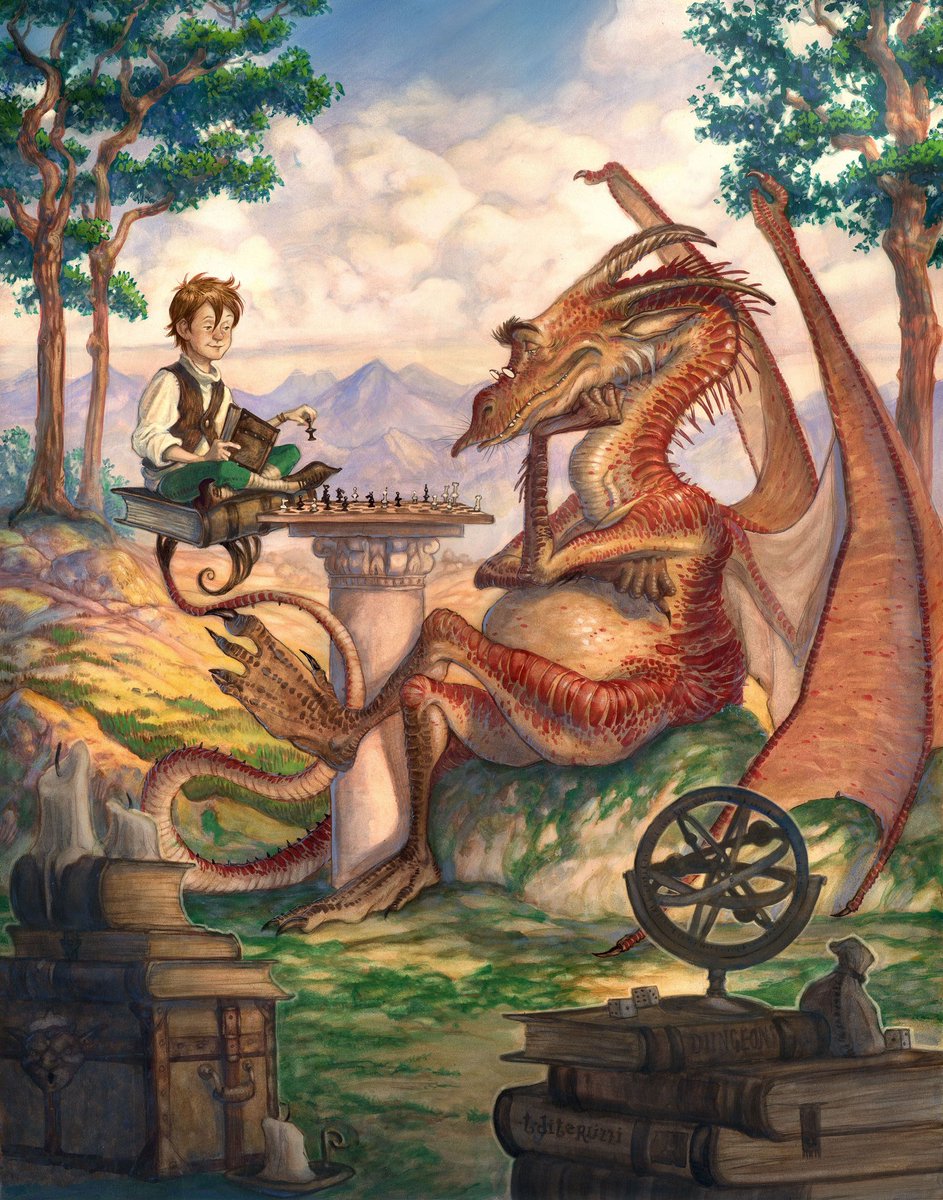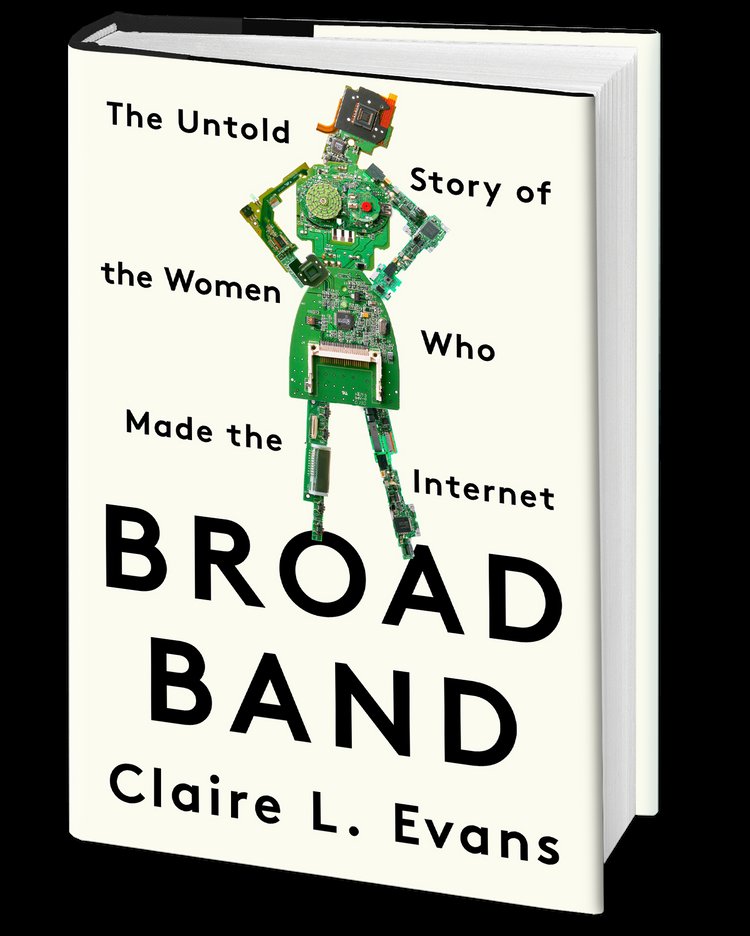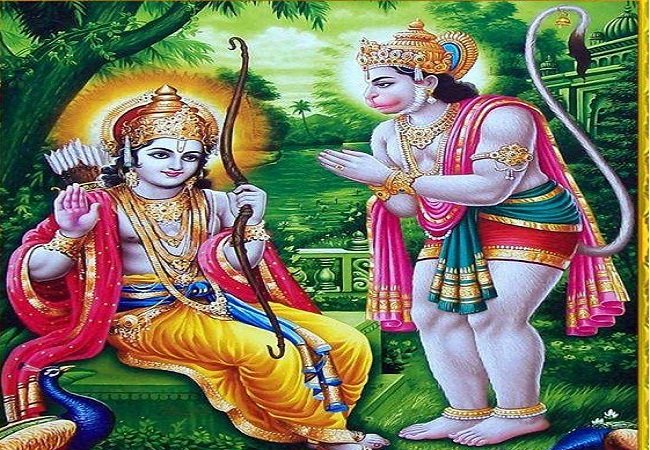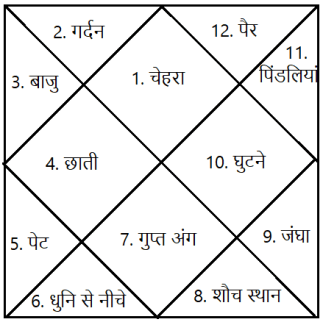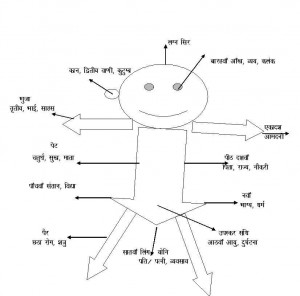it has come our attention that some of our newer followers are struggling to understand the words we use to describe our rare books, and you are in for a treat with this simple guide to "Words That Don't Mean Anything What It Seems Like They Mean"
[thread 1/?]
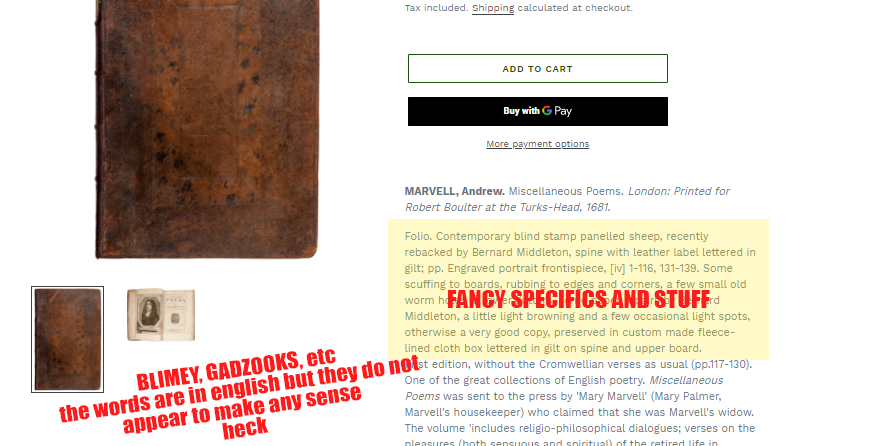
FINE: the book was crapped out by an angel
VERY GOOD: no-one can prove anything
GOOD: lets just be grateful it has covers, shall we
FAIR: the book is on fire, guarded by a hydra
POOR: no book, only despair
so its not really very helpful. 5 tweets in and we have learned nothing. you are welcome.
I am going to cover some of the things you'll see most often, and you are going to hate me for it
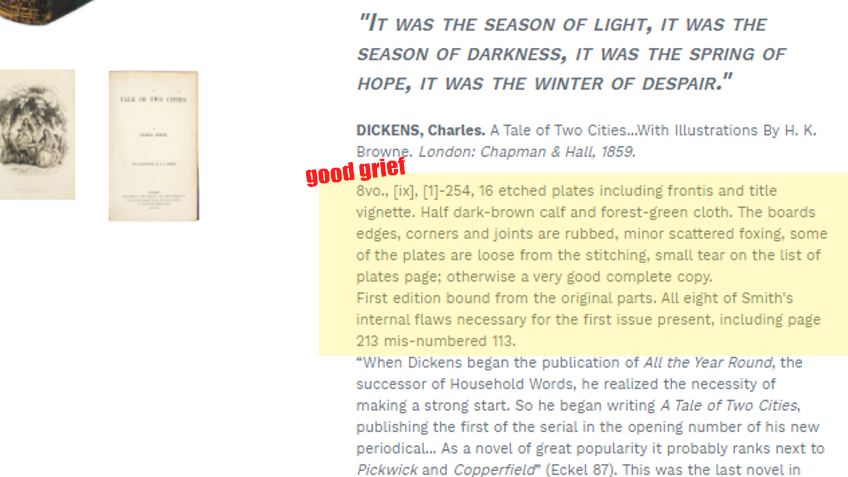
12mo, 8vo, 4to
This used to have a precise meaning to do with page folding, but booksellers got lazy and now it means 'we eyeballed the size of the book'
smaller number usually means a larger book
because of course
we'll say faded, or 'lightly browned' or 'a little tired' when what we mean is 'this book has grazed the abyss'
'sophisticated' literally means 'the book is a fake'
'extra-illustrated' means 'someone cut up and pasted a bunch of images inside the book like the love child of picasso and edward scissorhands'
personally i rather like the fun inscriptions, like the 18th century kid who drew rude pictures all over the inside his latin primer, but 🤷♀️
https://t.co/cGcFh4ZRgm
More from Culture
I just finished Eric Adler's The Battle of the Classics, and wanted to say something about Joel Christiansen's review linked below. I am not sure what motivates the review (I speculate a bit below), but it gives a very misleading impression of the book. 1/x
The meat of the criticism is that the history Adler gives is insufficiently critical. Adler describes a few figures who had a great influence on how the modern US university was formed. It's certainly critical: it focuses on the social Darwinism of these figures. 2/x
Other insinuations and suggestions in the review seem wildly off the mark, distorted, or inappropriate-- for example, that the book is clickbaity (it is scholarly) or conservative (hardly) or connected to the events at the Capitol (give me a break). 3/x
The core question: in what sense is classics inherently racist? Classics is old. On Adler's account, it begins in ancient Rome and is revived in the Renaissance. Slavery (Christiansen's primary concern) is also very old. Let's say classics is an education for slaveowners. 4/x
It's worth remembering that literacy itself is elite throughout most of this history. Literacy is, then, also the education of slaveowners. We can honor oral and musical traditions without denying that literacy is, generally, good. 5/x
As someone\u2019s who\u2019s read the book, this review strikes me as tremendously unfair. It mostly faults Adler for not writing the book the reviewer wishes he had! https://t.co/pqpt5Ziivj
— Teresa M. Bejan (@tmbejan) January 12, 2021
The meat of the criticism is that the history Adler gives is insufficiently critical. Adler describes a few figures who had a great influence on how the modern US university was formed. It's certainly critical: it focuses on the social Darwinism of these figures. 2/x
Other insinuations and suggestions in the review seem wildly off the mark, distorted, or inappropriate-- for example, that the book is clickbaity (it is scholarly) or conservative (hardly) or connected to the events at the Capitol (give me a break). 3/x
The core question: in what sense is classics inherently racist? Classics is old. On Adler's account, it begins in ancient Rome and is revived in the Renaissance. Slavery (Christiansen's primary concern) is also very old. Let's say classics is an education for slaveowners. 4/x
It's worth remembering that literacy itself is elite throughout most of this history. Literacy is, then, also the education of slaveowners. We can honor oral and musical traditions without denying that literacy is, generally, good. 5/x


